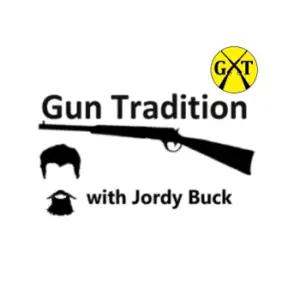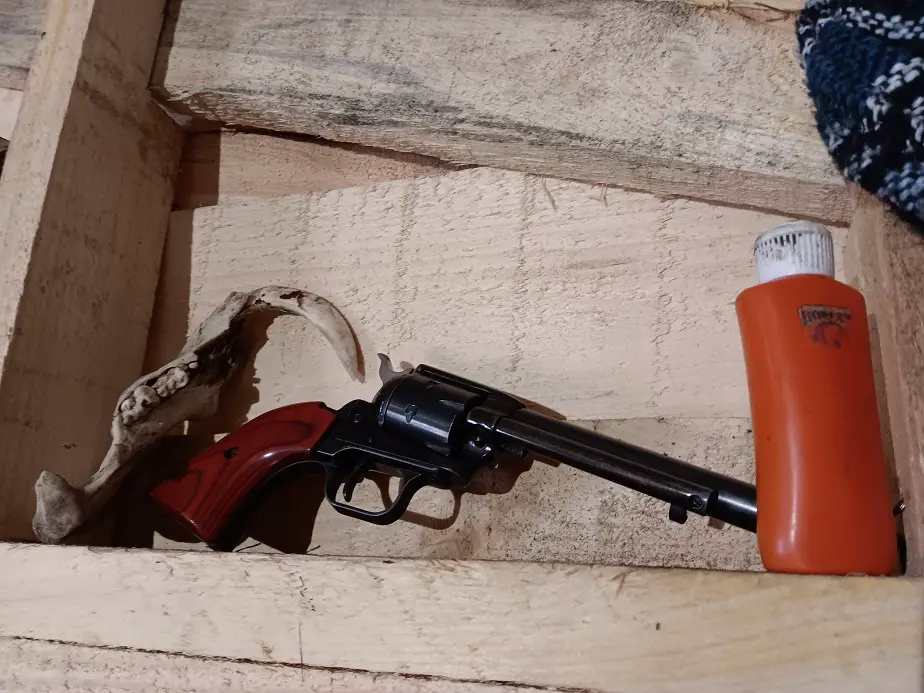Between myself, my friends, my brothers (and I’ve got a lot of brothers), we’ve tried all common gun oils, solvents, and cleaners. Personally, I’ve spent half a week researching gun oils. Here’s what I’ve found.
The best gun oil is Hopes Number 9. It has the best combination of lubrication, cleanliness, rust prevention, and ease of application. Hornady One-Shot and WD-40 Specialist are other great options. HOPPE’S NO.9 gun oil is time proven and lab tested to be the best overall gun oil for anything less than arctic conditions.
In the US there are over 50 commonly used oils for guns and I’ve tested most of them. Here’s what I trust to keep my guns protected.
What is the Best Gun oil?
HOPPE’S is the best gun oil in my opinion, and by quite a ways. It’ll take something quite severe to get me to switch. I’ve tried every product I an get my hands on and eventually went back to what my dad and grandpa always used.
It’s the only oil I trust to protect the guns in my cabin. We have a high-humidity environment and I need the best. It sounds simple, but there’s a lot that goes into the testing of those qualities. Anecdotal evidence (user experience) is one way they are tested, and it should not be discounted.
The performance of gun oil is ranked in four primary categories. They are:
- Corrosion inhibition
- Steel on steel lubricity
- Cleanlines
- Performance in extreme weather
A test done as a side by side comparison of different oils in the exact same environment is the only way to determine which one actually functions better, and if it’s a difference that will actually matter for gun owners. Consistently, the best after testing are: HOPPE’S, WD-40 Specialist, Hornady One Shot, and Frog Lube.
HOPPE’S, WD-40 Specialist, and Hornady One Shot go on like any regular oil, just wipe it on lightly and you’re good to go. The Frog Lube isn’t so simple. Proper application of Frog Lube requires a direct heat source. Either a heat gun or a hair dryer seems to work fine.
You’re supposed to heat up all metal parts to get the oil thin enough and to get it to bond with the steel, almost like seasoning a cast iron pan. Frog lube is technically a CLP, but not a very good one. I would not rely on it for any cleaning ability. A common complain about Frog Lube is its tendency to make your guns feel sticky. If used too heavily, your gun may not operate well. Keep it thin.
In other words, Frog Lube has special operating instructions and is a problem if done wrong. For that reason, I can’t recommend d it as a gun oil. It’s also the most expensive option. I really do think the ole’-dependable HOPPE’s is once again the winner. It’s been the best for over 100 years now.
- Here’s a link to HOPPE’S NO. 9 gun oil on Amazon
- Here’s a link to HOPPE’S oil/cleaner combo pack on Amazon
If you want the all-in-all setup to clean every gun, You should look at the HOPPE’S universal gun cleaning kit. It has all the tools and accessories to clean and scrub every gun you own. It’s a very good thing to have if you own multiple guns.
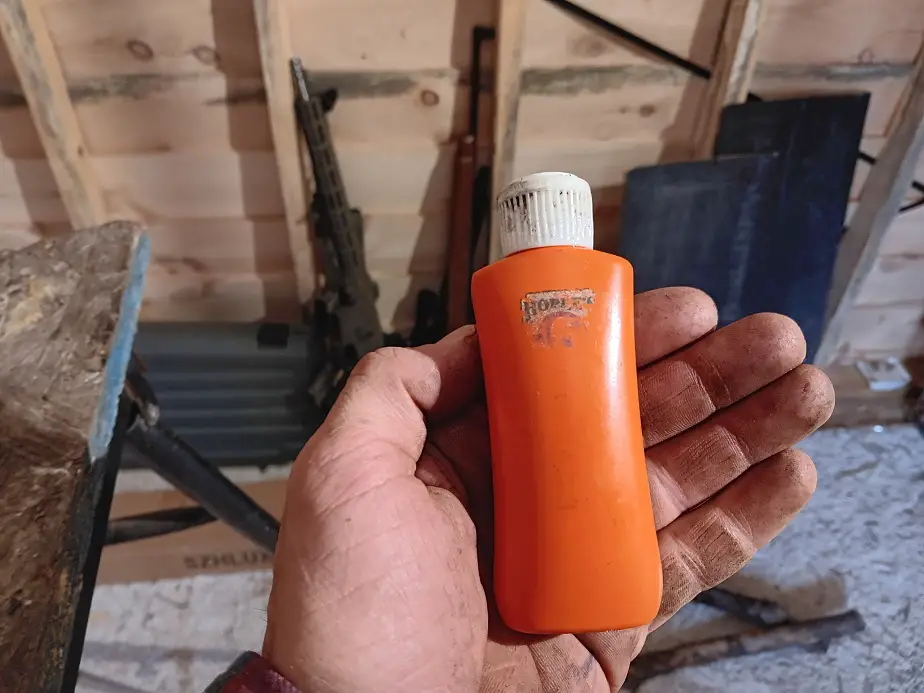
Best Gun Oil for Lubrication
In lab tests for lubricity, frog lube came out as the the slipperiest, in standard weather conditions. Frog Lube has almost a cult-like following in the gun community. Trouble is, it’s known to function poorly in hot weather.
In a firearm, lubricating oil has to withstand pressure, heat, and not dry out. Lubricating oil not only keeps moving parts from having too much friction, it also cleans them from coarse debris. A bit of oil helps to displace crud between moving parts. That’s why a quick drop of oil usually frees up dirty parts.
In choosing the best lubricating oil, we don’t simply want the slipperiest. Honestly, that can almost be a bad thing. What we want is consistency. The best gun oil for moving parts would not dry, and is stable in extreme weather. Quite a few will get loose as water in Texas heat, and gel in Michigan winters.
Most gun oils or machine oils will do fine if you are not in an extremely cold situation. They all work about the same. Put it on the gun, watch the gun work. I’ve got a little jingle I use to teach new people how to oil their gun: “Wipe on, wipe off, leave just a little”.
That’s how to do it. The proper way to lubricate *almost* any gun is to wipe it on with an oiled rag, then wipe it off with a clean, dry rag. That way, you’ll have lubricated surfaces and you will avoid making things sticky with too much oil. Actually, it’s slipperier applied this way.
I have personally had 3in1 and Rem oil gel up on cold winter days. They turned into a thick grease somewhere under -10 degrees Fahrenheit during one of our Arctic Clippers (a really cold windy storm). Many guns won’t operate well with a gelled-up oil.
Semi-autos may not return to battery after being fired. It may not feed at all. That’s kinda bad. If applied thinly, as stated above, you will stand less of a chance of cold oil bogging down your action or trigger. Remember, “Wipe on, wipe off, leave just a little”.
The best oils for extreme cold weather use are fully synthetic oils. Synthetic oils are purer than standard petroleum oils, and they are much more stable in ridiculously harsh winter weather. They are more expensive, but they are much more stable, thus dependable, in all conditions.
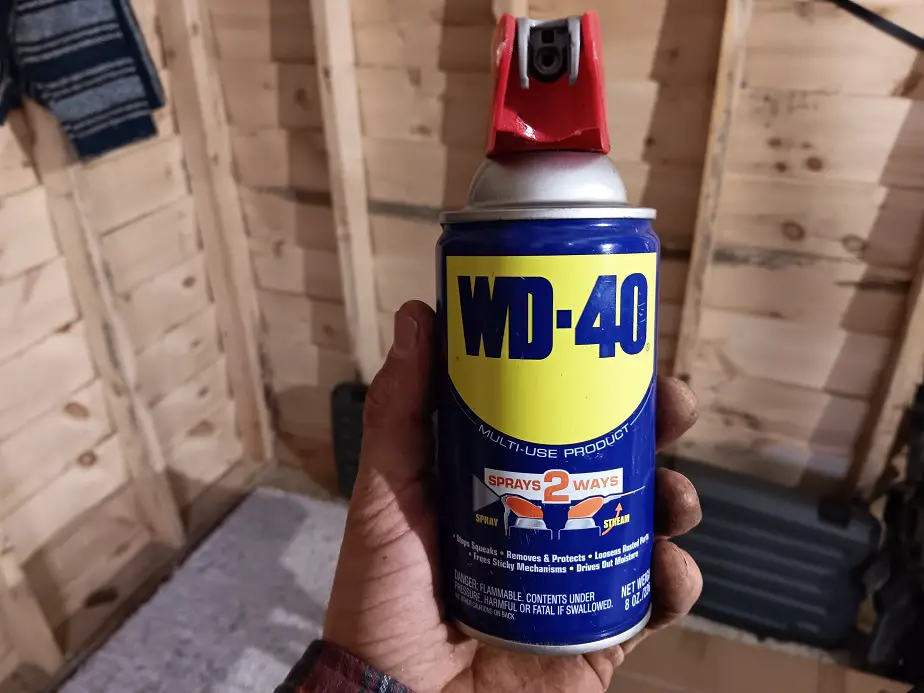
What Makes a Bad Gun Oil?
Honestly, most any oil will work to prevent rust, sort of, for a while. Some of them don’t do it nearly as well or for as long. herein lies the problem: Oil naturally floats on water. basically, a lot of oils will eventually float up and run away if exposed to rain.
Some oils are more volatile, meaning at least part of it will tend to evaporate, leaving less than you started. That doesn’t leave enough left to have a solid moisture barrier on your steel gun barrel. Regular WD-40 is an example. It tends to dry out after a few weeks, leaving very little oil.
If an oil tends to dry out, it usually makes a mess too. Not everything will evaporate away. Some petroleum remnants, as well as all the impurities will remain. When you notice it’s dry and add more, it will be thicker because of the leftover gunk.
As more fresh oil is added and evaporated, the remnants start to add up and build up a nasty gummy layer that will hold onto dirt and carbon dust from the burning gunpowder. That’s one of the common reasons that old guns have trigger problems. For the record, regular cleaning will prevent that.
Like I said, I’m trying to use up my 3in1 oil. But 3in1 tends to dry out a bit. That’s probably why my guns have little rust specks here and there. Don’t fret, I don’t have any beauty queens in my gun safe anyway. My guns are like work horses. 3in1 works as long as I clean and reapply often.
However, nearing -20 degrees Fahrenheit, it’s pretty solid. Thanks to a guy in Alaska for telling me that number. For most people won’t find themselves in that weather, you have many more choices in functional gun oils. I almost envy you, except that I love the frigid temperatures so.
Does Gun Oil Clean Guns?
While some oils can have cleaning capacities, like citrus oil, most do not. Any product strictly labeled “oil” or “gun oil” will not have any suitable cleaning properties. There are three different substances in guns that needs to be cleaned. Carbon fouling, copper, and lead. Some bullets are jacketed with brass, so that too, I guess.
The metals usually require an ammonia to dissolve them out of the barrel. For the carbon build up, generally, a volatile, penetrating oil product, like kerosene works best. The best for carbon seems to be a thin oil-based solvent. I suppose citrus oil may actually work there, if you don’t mind your gun smelling fruity.
Most of the oils are not solvents, either for metal or for burnt gunpowder carbon gunk. Some oil-based products are superb solvents for powder/carbon fouling. Some that come to mind are gasoline, kerosene, and high-grade diesel fuel (not the gas station stuff).
Gasoline is too toxic and volatile, not to mention explosive, for use. Kerosene on the other hand, is very flammable, but not explosive. Kerosene itself isn’t a bad option as a cleaner. That’s why HOPPE’S Bore Cleaner has kerosene in it.
It’s a poor lubricator by itself because it evaporates within a few minutes. That’s Why if you use Hoppe’s Bore Cleaner, you also need an oil. CLP products are mostly oils, and will lubricate things well enough to maintain function. They just don’t clean things very well. remember, Frog Lube is a CLP.
If you are using a regular oil to clean your gun, you’re gonna need to do a lot of scrubbing. If you have a good bore brush, you can eventually get the barrel clean from carbon using only oil, it may take two hours though. in that case, the oil isn’t doing it, the brush is. If you only have patches, you’re screwed.
An oil will not get metal deposits out of a barrel. Granted, metal fouling isn’t usually a noticeable problem for many people, but if it’s there, you need a cleaner containing ammonia.
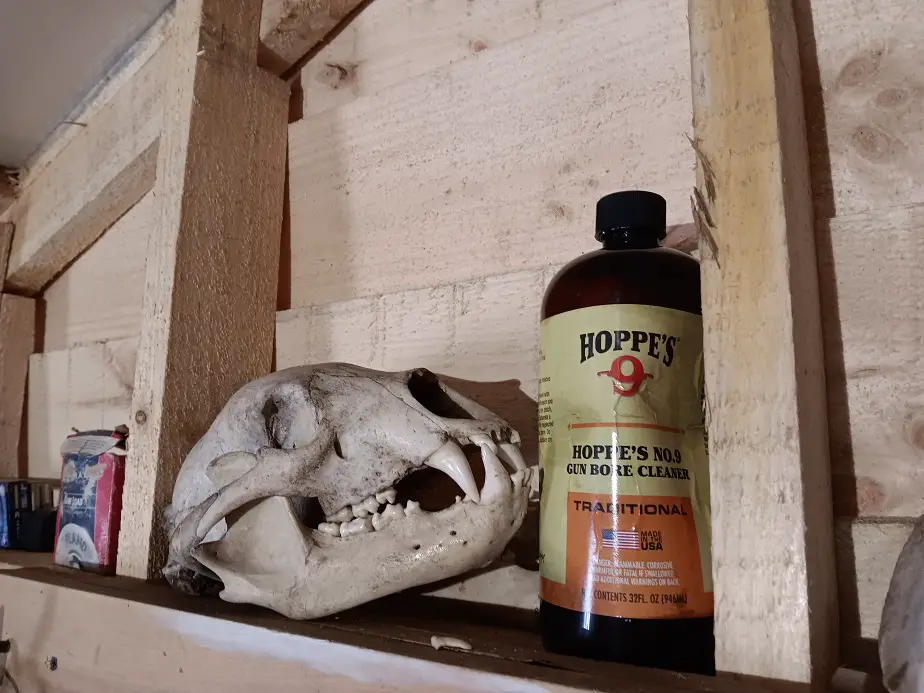
What’s the best Gun Cleaner?
The most popular gun cleaners, or, bore solvents, are: HOPPE’S NO.9 Bore Cleaner, CLP, and Ballistol. Honestly, the worst in the group is usually the standard CLP. CLP stands for Clean, Lube, Protect. That’s the general issue do-all gun fluid in the U.S. military.
It isn’t super great at any one thing, but a middle of the road performer in all lubrication, rust prevention, and cleaning carbon. It doesn’t touch copper or lead fouling. The US military also states that metal fouling shows no accuracy differences for infantry soldiers.
Remember, that’s from an organization that accepts a 6-inch group at 30 meters as baseline accuracy. I know that super accuracy isn’t needed if you can just call in a helicopter or missile strike, but I require better for a basic rifleman in my group. We keep our barrels copper free.
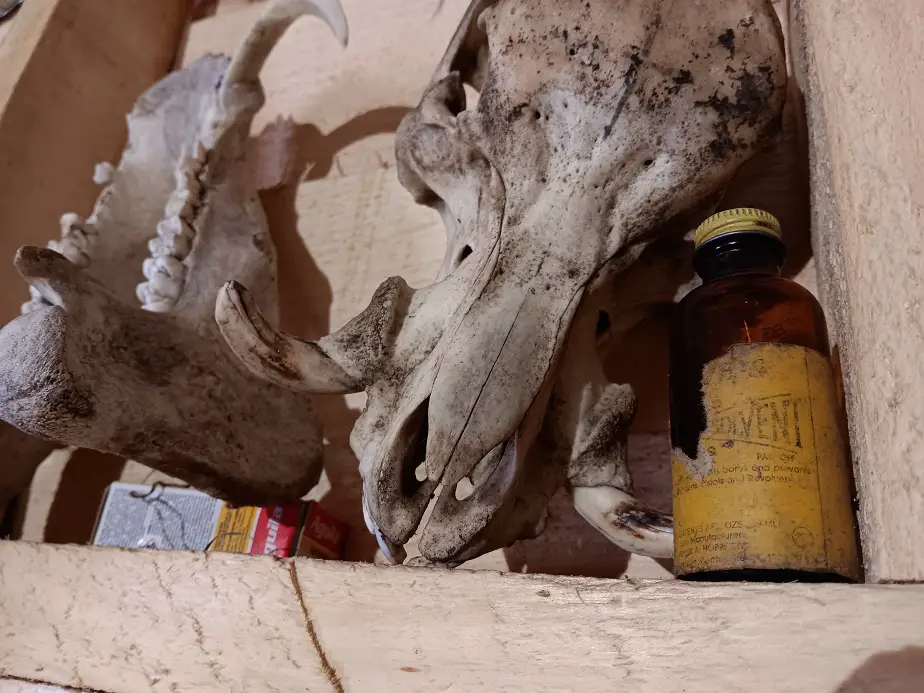
Funny, but true
I get a lot of laughs when I say this un my c lasses, but it holds true and people remember it well. Clean your guns like you clean your butt. Wipe it down after each use, and give it a good scrub once in a while. Hey, it’s a perfect illustration, and you’re not likely to forget it.
Balistol was first concocted by some German fellows in 1905. It was issued to the German army in both World Wars. It is also a do-all gun fluid. However, it’s much better at removing lead and somewhat better at removing copper from a barrel. It’s also great at removing carbon.
The old time favorite in the group is HOPPE’S NO.9 Bore Cleaner. Some smart guy came up with a mix of 9 different chemicals including ammonia, kerosene, and alcohol. It was invented in 1903. I’m sure the recipe has changed a little since the beginning, but it’s still got kerosene, ammonia, and several alcohols.
HOPPE’S is the best of the Standard gun cleaners when it comes to getting rid of lead or copper fouling. It’s also about as good as it gets at penetrating and dissolving through carbon buildup. Because it contains Kerosene and alcohols, it’s very flammable, which is probably why he military never used it.
I’m a proud 3rd Generation HOPPE’S guy. My grandpa, my dad, and me all used HOPPE’S. I may actually be a fourth generation HOPPE’S guy, but no one alive knows what Great Grandpa used.
The best thing HOPPE’s NO.9 Bore Cleaner has going for it, beside the fact that it works super amazingly, is that it’s the cheapest option out there. HOPPE’S is always the cheapest gun cleaner in the gun store. Plus, most guys seem to think it smells strangely pleasing.
I will probably continue to recommend HOPPE’s Bore Cleaner to my team as long as it’s obtainable. It’s not a do-all like CLP or Ballistol. HOPPE’S will dry leaving about 0.3 percent of its original volume in clean oil, which isn’t anything really. That’s why I carry two bottles in my cleaning kit.
I carry HOPPE’S Bore Cleaner and HOPES NO.9 gun oil in my shooting bag. I’ll see you next time. Until then, shoot straight and keep your head down.
